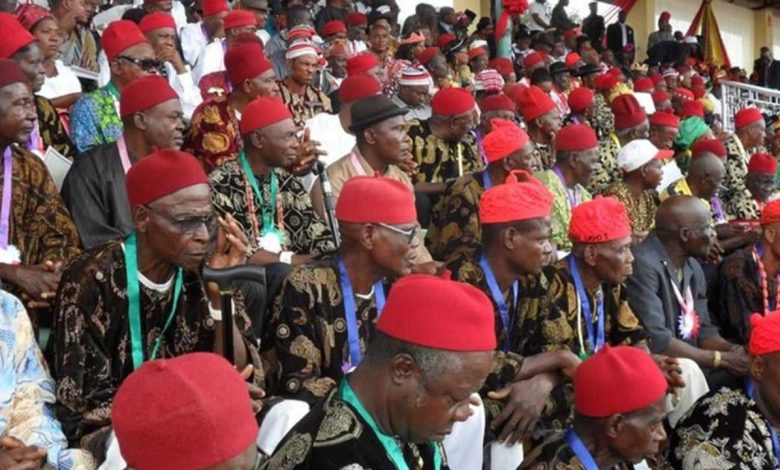By TONY ONYIMA
The Nigerian Senate has confirmed the nominees for the Governing Board of the South East Development Commission (SEDC) today, January 14, 2025. This landmark decision ushers in a new era of hope for the Southeast region, which continues to grapple with the socio-economic scars of the Nigerian civil war and the subsequent decades of neglect. Among those confirmed are Hon. Mark Okoye, who will serve as Managing Director/CEO, and Dr Emeka Nworgu, who will assume the role of Chairman of the Board of Directors.
Other members of the 18-man board are Barr. Ugochukwu H. Agballah, Hon. Okey Ezenwa, Chief Hyacinth Ikpor, Chidi Echeazu, Barr. Ifeanyi Agwu, Nasiru Usman, Hamma Adama Ali Kumo, Edward David Onoja, Orure Kufre Inima, Daniel Akwari, Chief (Mrs.) Joke Adebayo-Chukwuma, Rt. Hon. Stanley Ohajuruka (Executive Director, Finance), Chief Sylvester Okonkwo (Executive Director, Corporate Services), Hon. Toby Okechukwu (Executive Director, Projects), Sen. Anthony Agbo (Executive Director, Commercial and Industrial Development), and Dr. Clifford Ogbede (Executive Director, Natural Resources, Agriculture, and Rural Development).
The confirmation followed a thorough screening exercise conducted by the Senate’s Adhoc Committee on Regional Development Commissions chaired by Senator Orji Uzor Kalu (Abia North). The committee found the nominees competent to steer the commission’s affairs, a sentiment echoed by the unanimous voice votes from the senators.
The SEDC can potentially be a transformative force, catalysing socio-economic and infrastructural development in the Southeast. Below are 10 ways the commission can accelerate development in the region:
1. Infrastructural Development
The Southeast suffers from chronic infrastructural deficits, which hinder its economic growth. The SEDC can take the lead in addressing these challenges by (a) constructing and rehabilitating major road networks and bridges to enhance connectivity within the region and to neighbouring states. This will also facilitate trade and reduce transportation costs; (b) collaborating with the federal government to establish efficient rail systems linking major towns and cities, boosting industrialisation, tourism, and commerce; (c) investing in renewable energy projects and upgrading existing power infrastructure to provide reliable electricity for businesses and households.
2. Economic Empowerment
Job creation is critical for the predominantly youthful population of the Southeast. The SEDC should establish industrial clusters and agro-industrial zones to harness the entrepreneurial spirit of the Igbo people; provide funding, training, and mentorship for small- and medium-sized enterprises (SMEs), and revitalise agriculture by promoting mechanisation, irrigation and market access, leveraging the region’s fertile land.
3. Urban Renewal and Housing
More than five decades after the civil war, many communities still bear its scars. To address the housing deficit, the SEDC should focus on rebuilding and modernising war-damaged areas, abandoned buildings, and underserved communities, and developing affordable housing schemes for low-income earners and displaced persons.
4. Health and Education
The region’s health and education sectors require urgent intervention. The commission can establish specialist hospitals in each state to promote medical tourism, improve healthcare delivery, and invest in vocational training centres to equip youths with artisanal skills, reducing unemployment and fostering self-reliance.
5. Cultural and Historic Preservation
The rich cultural heritage of the Southeast must be preserved and celebrated. The SEDC should create and support museums and cultural centres to protect the region’s history, particularly artefacts from the war era, thus promoting cultural tourism. It should also fund initiatives to revive and sustain the Igbo language, traditions, and arts, ensuring they are passed on to future generations.
6. Youth Development
With a high unemployment rate among the youth, the SEDC can address this by (a) launching public works projects and tech-based job opportunities to create employment; (b) establishing technology hubs to position the region as a centre for innovation and a tech-driven economy; (c) providing entrepreneurship programmes that equip young people with the skills to thrive in the modern economy.
7. Security
Security is a prerequisite for development. The SEDC should collaborate with local communities to enhance security through surveillance systems, strengthen vigilante groups, and facilitate inter-state cooperation and intelligence sharing to combat crime and ensure a safer environment for residents and businesses.
8. Environmental Sustainability
The Southeast faces a growing ecological crisis, particularly from erosion. The SEDC can invest in large-scale erosion control projects to address the menace of gully erosion, which threatens lives and properties. It should also develop recycling plants and modern waste disposal systems to improve sanitation and promote sustainable living practices.
9. Diaspora Engagement
The Igbo diaspora is a formidable resource that the SEDC must leverage. The commission should facilitate partnerships between the diaspora and local communities to attract investments and transfer knowledge. It should be a platform for the diaspora to contribute to regional development through mentorship, funding, and advocacy.
10. Policy Advocacy and Regional Coordination
The success of the SEDC hinges on effective collaboration and policy advocacy. The commission must work closely with state governments, federal agencies and international partners to develop comprehensive development plans. It should advocate policies that address historical injustices, ensure equitable resource allocation, and promote fair representation of the region in national affairs.
The establishment of the SEDC is a watershed moment for the Southeast. However, its success will depend on its leadership’s commitment, transparency, and efficiency. By addressing the critical areas highlighted above, the commission can heal the region’s wounds, restore its dignity, and unlock its immense potential for sustainable development. The people of the Southeast must also play their part by supporting the SEDC’s initiatives, holding the commission accountable, and contributing their resources and talents to regional growth. The journey to transforming the Southeast will not be easy, but it is worth taking. The time to act is now.
Onyima, PhD, a public policy advisor and communication consultant, writes from Umuoji.
#











